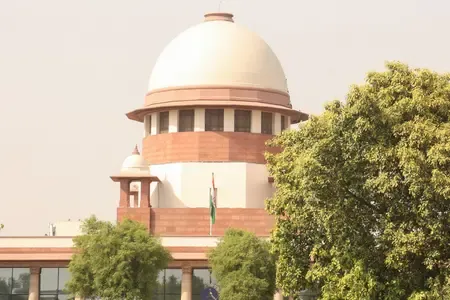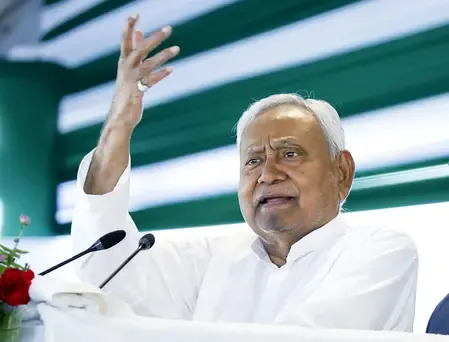Should TET Be Mandatory for Minority Institutions?

Synopsis
Key Takeaways
- Supreme Court has referred a PIL regarding TET to the CJI.
- Petition raises significant legal issues about education equality.
- Challenges exemptions for minority schools under the RTE Act.
- Calls for a uniform education system for all children.
- Seeks to uphold fundamental rights to education.
New Delhi, Oct 15 (NationPress) A two-judge panel of the Supreme Court has referred a public interest litigation (PIL) to the Chief Justice of India (CJI), which seeks to mandate the Teacher Eligibility Test (TET) for all educational institutions catering to children aged 6-14 years, including those run by minority groups. The Bench, comprising Justices Dipankar Datta and AG Masih, remarked that the petition raises significant legal issues and noted that similar cases have already been forwarded to a larger Bench.
The petition contended that the exemption of minority-run schools from the Right to Education (RTE) Act infringes upon fundamental rights to equality and education as guaranteed under Articles 14, 15, 16, 21, and 21A of the Constitution.
It challenges Sections 1(4) and 1(5) of the RTE Act, labeling them as arbitrary, discriminatory, and unconstitutional. The PIL argues, “The Right to Education, as enshrined in Article 21A, necessitates equal quality education. Thus, the exclusion of specific schools from TET contradicts the fundamental principles outlined in the Constitution,” the petition stated.
The petitioner, Nitin Upadhyay, a law student at Delhi University, asserted that Article 30, which safeguards the rights of minorities to establish and manage educational institutions, should be interpreted in a “purposive, not literal” manner.
“The intent of Article 30 is to foster equality among all citizens and to place minority groups on an equal footing,” the petition emphasized, referencing a recent Supreme Court ruling that questioned whether exempting minority schools from the RTE Act perpetuates systemic exclusion.
The PIL cited the Anjuman Ishaat-E-Taleem Trust vs. State of Maharashtra case and highlighted a 2021 study by the National Commission for Protection of Child Rights (NCPCR), which revealed that only 8.76 percent of students in minority institutions hail from socially and economically disadvantaged backgrounds.
Seeking a uniform education system, the PIL argued that implementing TET consistently would improve educational standards and serve the national interest.
“A standardized minimum education framework for children up to 14 years would promote cultural unity, eliminate disparities, and reduce discriminatory values,” the petition asserted.
The PIL requests a declaration that Sections 1(4) and 1(5) are null and void for breaching equality and educational rights, asserting that schools providing both religious and secular education fall under the RTE Act's provisions.









